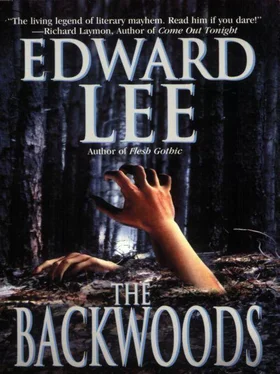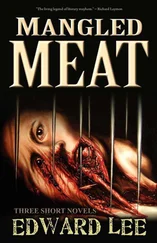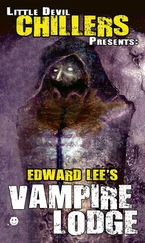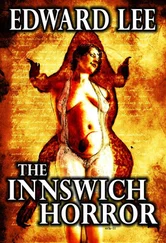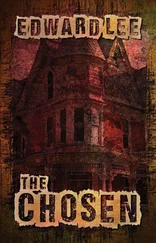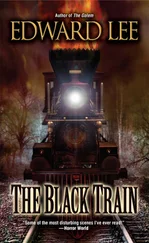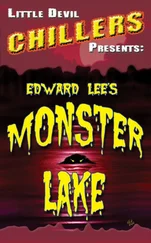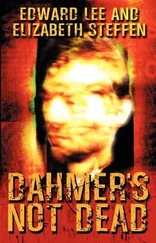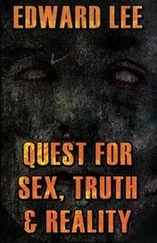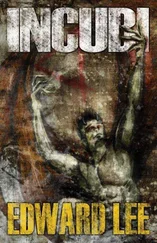The sensations rose and rose. Loops of rope abraded her ankles and wrists, and every muscle in her body began to clench up; a feeling she’d never experienced seemed to sear into her, something scalding hot but delicious. Then that detached kernel of her consciousness—that seemed to be spectating the crime from afar—snapped back into her brain like something yanked inward off a cord, and at last the thing that all those sensations had been building up to . . .
. . . broke.
Patricia went out of her mind, and that was all she remembered.
Some early risers found her at sunup. When the duct tape was peeled off her eyes—taking quite a bit off her brows—she dizzily saw that she’d been staked to the ground. She felt humiliated and insensible, naked and laid out for all to see. A man who’d been walking his dog gave her a light jacket to wear until the police came.
Of course her assailant had raped her after his oral invasion, yet she remembered none of it. She could feel her virginity ruptured between her legs, but at least there was little blood, and she recalled no pain. But she could feel the sperm deep in her like some devilish slime. Her mind spun in rings of disgust; she couldn’t have felt dirtier than if she’d been defecated on. Worse were the pitying looks in the eyes of the people who’d found her, as though she were crippled, an elderly invalid who could no longer control her bowels. “Poor girl,” a woman said. “Like to kill the sick animal that did this,” said a man. But Patricia could barely even cogitate. Eventually a much younger Chief Sutter arrived to take her home. Her mother and Judy were aghast, Judy breaking into tears when she’d heard what happened. Chief Sutter couldn’t have been more considerate in dealing with the sensitive aftermath of physical examinations and questioning. There’d been no DNA profiling back in those days, no way to type her assailant with technology, just a vaginal smear for rudimentary disease screening. And Patricia supposed—even now, after the passage of over two decades—that if anything could be worse for her than the rape itself, it was her father’s reaction when he’d learned of the details.
“Skinny-dipping!” he bellowed, red in the face when he’d gotten home from the crabbing docks. “Runnin’ around with no clothes on like a common tramp! Life’s hard enough, and now I got a daughter shitting on our good family’s name, makin’ us look like trash!” He slapped her in the face with a sound like wet leather snapping. “How could you let something like that happen?”
The words were worse even than the blow; Patricia felt as though she’d been shot with a gun. Tears flooded her eyes, and when she looked to her mother for support . . . her mother just looked back with a face set in stone.
So long ago, she thought now, looking at the poster on the wall. I’d forgotten all about it, until I came back here.
Enough of this . . .
She shook off the flash of despair, focusing instead on the bag that Chief Sutter had given her. I guess the desk is as good as anyplace, she thought, and tucked it back in the bottom drawer. The recollection of her father—and Bowen’s Field—seemed to hasten her out of the cramped room, but before she would leave, she made an abrupt decision.
She tore the poster down and crunched it up in her hands. The gesture provided little satisfaction, but that was better than nothing. She was about to drop it in the small wastebasket by the desk when something caught her eye.
Something inside.
An envelope and a crumpled letter.
Perhaps the only reason she’d noticed them at all was because the items were the only things in the basket.
She picked them out, focusing. . . .
The envelope was addressed to Dwayne, handwritten, not typed. There was no return address; the local postmark was dated one day before Dwayne’s death. Junk mail wouldn’t be handwritten, but it was obviously something Dwayne had opened, looked at, and immediately discarded.
Her curiosity pecked at her, though she couldn’t imagine why; Patricia wasn’t ordinarily nosy. The bastard’s dead, so it’s not like I’m invading his privacy, she reasoned.
Paper crinkled as she uncrumpled what she could only guess was a letter, but she saw in a moment that it was not really a letter at all.
Just a sheet of paper with one word inscribed neatly at the top.
Wenden .
(III)
It’s heavenly , he thought. He stared up in wonder, drinking up the sight of the stars. My whole life is heavenly. . . .
The night couldn’t have been more beautiful, nor could his love. The God that he believed in was much more nebulous than the God of most people, but just as real. Wilfrud knew, in fact, that they were all essentially the same, and it was to that great ethereal and omnipresent being that he now offered his unbounded thanks.
Ethel, his wife, puttered in the woods, focused on their task. It was Wilfrud who was the dreamer of the pair, the introspective one, which she often, in her loving way, dismissed as laziness. But it’s only my love that makes me a dreamer, he thought, and she knew that, of course.
Besides, she was the better diviner.
Divination could be very effective in obtaining knowledge of that which one desired, so long as the practitioners were faithful people. Faith was in the heart, in the soul. Wilfrud and Ethel had been the clan’s diviners for decades, since their late teens. They solicited the spirits of nature tonight for nothing more complex than finding honey morels for the weekend’s clan banquet. Ethel made a delectable mushroom roux that specifically depended on this rare edible fungus, but they were very difficult to find.
Diviners, however, could find them a little easier than others.
Earlier they’d both prayed over the boiled pig knuckle, and now Ethel meandered about the woods, holding the clean bone in a cupped hand. It was not with anything like tactility by which she read the telltale signal—it would be more like a vibration in her head. She was naked, of course, to further appease the spirits, and Wilfrud’s eyes couldn’t resist that raw beauty of hers as she stepped through the brambles, sensing the air. Her bare skin shone so white in the moonlight; it looked so perfect. No, neither of them was young anymore, but looking at her now, in the quiet night’s glow, Wilfrud got short of breath. He couldn’t be more grateful to God for giving him so beautiful a wife.
The decades had blessed her body; she didn’t look at all like a woman in her mid-fifties, and the gray had barely touched her long, raven-black hair. Even her bosom barely sagged; her breasts glowed like lambent orbs in the moon’s light, centered with large, dark nipples. About her neck hung the pendant he’d made for her when they’d gotten married, a deep blue-and-scarlet pontica stone that diviners and mediums often wore, to maximize their visions. The stone hung between her breasts and seemed to change color when her own passions inflamed. Wilfrud himself wore the cross she’d given him just as long ago: two meticulously carved shavings from an eddo root.
For a moment Wilfrud felt bolted to the ground; he couldn’t move; he could only swallow up this nighttime image of her. Oh, heaven, he thought. I am such a lucky man. . . .
She pivoted on her bare feet, not looking down but staring out into the night, listening for the secrets it would tell her, and then in a second she quickly got down on her knees and bent over. Wilfrud almost collapsed now, his desires reeling. This alternate glimpse of her—kneeling, naked, buttocks jutting—was the last thing Wilfrud needed to see just then. He was supposed to be helping her. . . .
Читать дальше
